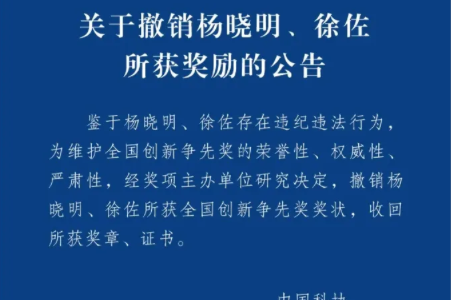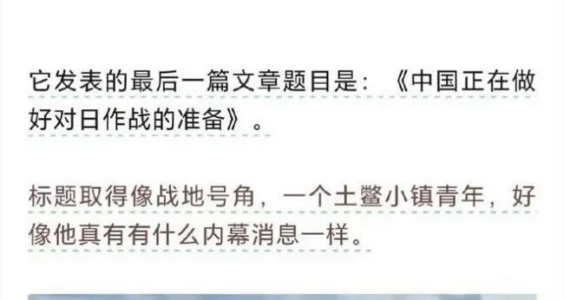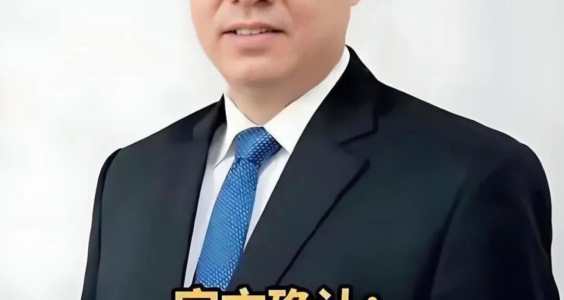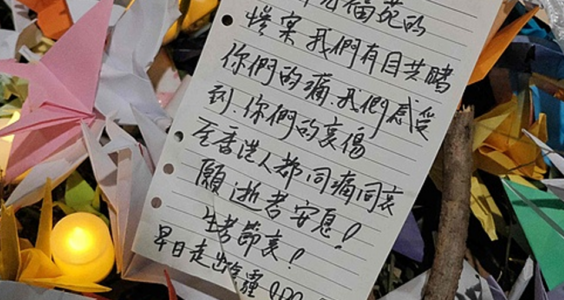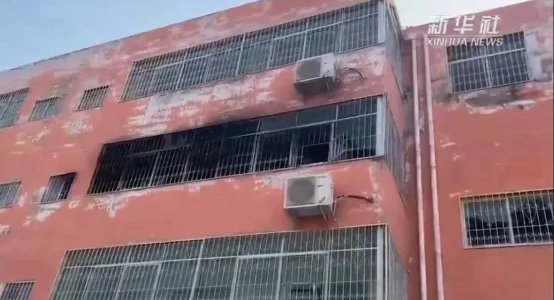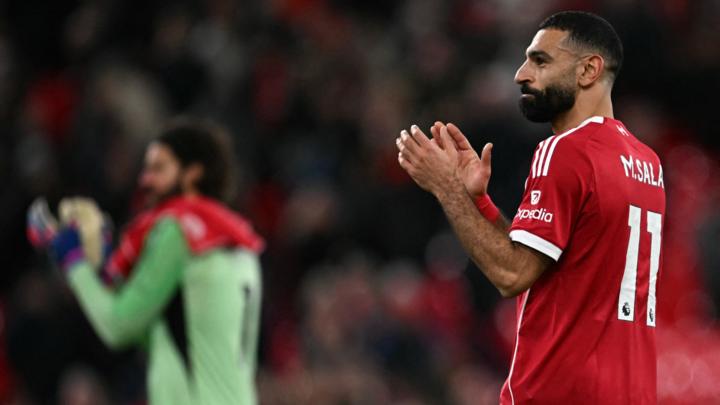

“他们为什么不公布结果?”
近两年来,范永归一直在追问这个问题的答案。
2024年1月19日晚11时,河南省南阳市方城县独树镇砚山铺村英才学校一宿舍发生火灾,导致13名三年级学生遇难,4人受伤。
范永归9岁的二儿子小南(化名)是遇难者之一。当年1月23日,方城县发布通报称,失火学校系寄宿制民办学校,当晚该宿舍住有32名三年级学生和1名宿管员(班主任)。
通报提到,调查组正在对事故原因、性质和消防器材配备等情况进行全面调查,调查结果将及时公布。
而事发近两年后,事故调查报告仍未公布。
近两年来,范永归通过各种方式申请、呼吁当地公开事故调查报告,希望给遇难孩子一个交代,给社会警醒。
2025年7月17日,他收到独树镇的信访答复:英才学校1·19火灾事故调查报告已结案。因涉及未成年人,根据未成年人保护法,事故调查报告不予公布。

“范永归收到的信访答复都为“事故调查报告不予公布”
范永归不满这份回复。“你可以把孩子的名字、年龄、家庭住址什么都隐藏,不能拿这个做挡箭牌,什么都不公布。”范永归说,“公职人员的具体处理情况不涉及未成年人,为什么也不公布?”
此外,上述回复提到英才学校法人代表、业务校长和班主任,因教育设施涉嫌重大责任事故罪已被方城县公安局羁押,正在移送起诉。
但该案的庭审多次推迟。“上个月通知说11月24日开庭,23日半夜突然通知开庭推迟。”范永归说,今年10月也曾收到开庭传票,亦被推迟。
与范永归的这些追问一同出现在公众视野中的,还有一份事发后家属和学校签订的赔偿协议。范永归和另一位遇难孩子的爷爷杨云朝告诉南风窗,当时不签协议见不了孩子,他们“被逼无奈”才签了。
但这份协议没让范永归停止追问。2024年11月,他从北京聘请了律师,向英才学校三位相关负责人提起刑事附带民事诉讼。
“不管花多少钱,都要给孩子一个交代。”范永归说。
1 先签协议,再见孩子
范永归是在事发次日接到村支书的电话,“孩子在学校出点事,问题不大,赶紧回来。”
当时范永归和妻子在东莞开了一家早餐店。尽管村支书这样说,但范永归心想,“如果不严重肯定不会让我回去”。他感觉这事不小,但没想到是最坏的结果。
他们买了当天的机票,去机场路上,有人在孩子班级群发了新闻报道截图,说有13个孩子遇难。
“我当时一下子就有种不祥的预感。”范永归说,一到南阳机场,当地的安抚小组就把他们接去了方城县一家酒店。
那时,范永归已经猜到孩子不在了。所以到酒店后,他第一时间要求见孩子遗体,“安抚小组让我们别着急”,范永归说,随后有警方找他们采血,这印证了他的判断,“抽血肯定是为了比对DNA,孩子肯定是没了”。
事发第三日,范永归依然要求见孩子遗体,“他们以各种理由不让见”。随后不久,范永归得知有工作人员找他家人谈赔偿协议。
“我听到后情绪很激动,孩子都没看着,签啥协议?”范永归说。
同时,在方城县另一酒店,杨云朝也接到了先签赔偿协议的通知。“他们让我们赶紧签协议,不然就见不了孩子。”杨云朝说。

赔偿协议的部分内容/图源:看看新闻News
僵持到2024年1月22日早晨,范永归他们仍未见到孩子遗体,对方还是强调先签协议,“签了协议就能见到孩子”,范回忆说。
杨云朝记得,当时还有工作人员说,晚一天签协议,赔偿就少10万元。看看新闻News公布的一份1月22日上午家属和相关人员的对话录音中,相关人员说:“11点半前,如果咱签了,再追加10万元······这说得有点紧,请您谅解和理解。”
杨云朝说,他一个老农民没办法,就签了。
范永归不想让孩子遗体在殡仪馆躺太久,“那时候腊月初九了,我们这很冷”,他说,当时迫切想见到孩子,“被逼无奈签了那个协议”。
这份甲方为英才学校,乙方为遇难者家属的“赔偿协议”显示,甲方支付乙方一笔赔偿金,乙方收到赔偿款后,保证不再因此事向任何主体主张任何权利,不得干扰甲方正常教学秩序,并做到不诉不访,否则,乙方承担一切法律责任。
同时,协议约定双方负有保密义务,不得外泄。

“赔偿协议”部分内容/图源:看看新闻News
范永归在当晚8点多签的协议,9点就被带去殡仪馆。“进去前,把我手机收了,说不让拍照”,范永归说,接着让他再签火化协议,“不然不让进去里面看,那时候我脑子一片空白,只想着马上看到孩子,签了字”。
但最后,范永归也没有近距离看到孩子。
当时,他几个亲戚先去看了一眼,出来后就坚持不让他进去。“我猜是孩子被烧得很惨,他们怕我看了崩溃。”范永归说,最终,他远远看了孩子一眼。
随后,孩子遗体被火化。
他妻子因为前一天梦到孩子周末“回家”了,坚持要回去看看,就由孩子奶奶陪着去了。所以她们两人没有看到孩子最后一眼。“我也不忍心让她们看到。”范永归说,他瞒着妻子和母亲,就说孩子只是被烟呛晕了,除了脸上有灰,其他都好。
杨云朝也同样签了一份火化协议。之后,他看到孙子的遗体“被一个袄包住了,看不清”,他们那样看了看,遗体也被拉去火化。
火化结束,范永归和杨云朝他们各自捧着骨灰盒回了老家。范永归记得,当时回家,方城县那边有人陪同,到家之后,他们都走了。
“从那天开始,他们就再没有问过这件事,对家属的心理辅导、安抚什么的都没有。”范永归说。
2 调查事故报告不予公布
事发3个月后,范永归就开始询问事故调查结果。
他当时向有关部门反映,之后方城县一部门受理,但一直没给回复,直到今年7月。“后来我又打电话问其他部门,他们说正在处理、跟领导在反馈什么的。”范永归说,他前后给各部门寄了近200封信件。
为此,他还专门买了一台笔记本电脑,用来写相关材料。同时,尽管只有初中学历,但他购入法律书籍自学,希望可以通过法律途径表达诉求。
事发后,范永归和妻子也没再外出,在当地开了一家小吃店。但没开多久,范永归因为孩子这事难以静下心来,就把小吃店转了,专心为孩子“要一个结果”。
范永归记得,2024年7月,方城县派了两个工作人员来跟他沟通。他从对方那里得知,事故调查报告在当年5月中旬就已完成,但因为涉及未成年人不能公开。
他接受不了这个理由。他觉得调查报告里可以不提未成年人的信息,但其他更多的细节需要向大众公布,尤其是学校的消防设施和公职人员的处理情况。
范永归告诉南风窗,当时孩子小南入住那个宿舍时,他曾去铺过床。宿舍在三楼,两间房,跟教室一样。
“从宿舍门口开始,靠墙一圈全是床,中间留了块空地。”范永归回忆道,床是上下铺,有铁的,也有木制的。房间前后两个门,后门平时是封起来的,只开前门。
他强调,当时宿舍里没有任何消防器材,灭火器、消防喷淋、烟感器等都没有。

英才学校着火宿舍旁边的宿舍堆满了学生床铺
“当时我们几个家长还在聊,这么大、这么挤的宿舍也没个灭火器。有家长和老师就说,现在学校都这样,老师就住在宿舍,放心吧。”范永归说,“要是当时宿舍里有灭火器,值班老师说不定就在前期把火灭了。”
杨云朝之前也去过孙子的宿舍。孙子3岁的时候,孩子母亲就离家出走,再未回来,父亲常年外出打工,一直都是他们老两口照看孙子。
杨云朝看到的景象跟范永归差不多,他印象中宿舍很挤,床铺沿着墙摆了一圈,中间空出两米见方的空地。
他们都想知道,事发时宿舍有没有消防器材,值班老师在不在宿舍内等细节问题。
2025年7月17日,范永归收到独树镇政府的答复。其中提到调查报告已出,但因为涉及未成年人不予公布。此外,事故涉及的有关单位相关负责人,按照干部管理权限,已由省市县纪委监委部门依规依纪做出了相应处理。
此后,2025年9月、11月,他又陆续收到三份内容几乎一模一样的回复。

英才学校着火宿舍所在楼道被全部熏黑
再到2025年11月21日,范永归和杨云朝他们收到通知,河南省消防总队要向他们告知火灾事故调查结果,但看前要先签保密协议。“我当时在忙,就没有去。”范永归说。
杨云朝去签了保密协议。看之前他手机被收走,进去后,“就是他们有人给我念”,杨云朝说,对方主要说了两点:一是英才学校某年月日着火了;二是简单的起火原因。
“但我们还是想让他们公开这个调查报告,让我们知道更多的细节。”杨云朝说。
12月12日,南风窗记者就是否公开1·19方城英才学校火灾事故调查报告一事询问当地有关部门。记者先拨打方城县应急管理局官方联系电话,通话提示对方未交话费,无法接通。随后,记者拨打方城县委县政府办公室电话,对方表示其不知晓此事,建议联系宣传部门。记者多次拨打方城县办公室提供的宣传部联系电话,均无人接听。此外,记者亦多次拨打方城县教体局联系电话,均无人接听。
3 涉未成年人火灾事故报告公开已有先例
火灾事故调查报告,依规依理都应公开。
应急管理部于2023年2月印发的《生产安全事故调查报告编制指南(试行)》规定:事故调查报告应当依法及时向社会公开。
“公开时,应以开展调查的事故调查组名义在政府网站或主流媒体上全文公开事故调查报告正文内容。对涉及个人隐私、商业秘密以及法律法规规定的其他依法应当保密的内容,应进行适当处理后方可公开。”
按照国务院《生产安全事故报告和调查处理条例》规定,事故调查报告应包含以下内容:事故发生单位概况;事故发生经过和事故救援情况;事故造成的人员伤亡和直接经济损失;事故发生的原因和事故性质;事故责任的认定以及对事故责任者的处理建议;事故防范和整改措施。
范永归和杨云朝他们尤其想让官方公开后三项的内容,他们认为只有如此,对死去的孩子才算有交代,也能借此警示全国其他学校,避免此类事件再次发生。
但范永归为申请公开事故调查报告做了很多努力,最后的答复仍是:因涉及未成年人,报告不予公布。
官方答复中,不公布调查报告的具体依据是未成年人保护法第103条:公安机关、人民检察院、人民法院、司法行政部门以及其他组织和个人不得披露有关案件中未成年人的姓名、影像、住所、就读学校以及其他可能识别出其身份的信息,但查找失踪、被拐卖未成年人等情形除外。

火灾一周年后,范永归在事发宿舍拍下的照片
华南理工大学法学院副教授、执业律师叶竹盛认为,当地以涉及未成年人为由不公开调查事故报告并不合理。
叶竹盛表示,未成年人保护法中所说的不得披露未成年人信息,主要是在一些涉及未成年人的案件中,比如未成年人被性侵或被杀害等,需要对未成年人信息保密,案件不公开审理。且在后续文书上传裁判文书网或作为典型案例发布时,隐藏未成年人的身份信息。
“但火灾事故具有公共性,公布事故调查报告是对社会的一个交代,而且(在对未成年人信息处理后)并不会影响到未成年人本身的权利。”叶竹盛说。
上海大邦律师事务所律师丁金坤也表示,未成年的隐私,本意是保护未成年的健康成长,避免被外界干扰,所以不披露其姓名、年龄、外貌及所涉之事。
“如果人已经罹难,则民事主体不存在,隐私权也消亡了,何来继续保护其隐私?”丁金坤说道。法律要保护的是事件中生者的未成年人隐私权,披露时不指向特定个体则可。调查报告适当处理后,应该向社会公布,接受监督,并汲取事故教训,警醒世人。
此外,之前也已有涉及未成年人火灾事故调查报告公开的先例。
2021年6月25日,河南省柘城县震兴武官宿舍发生重大火灾事故,造成18人死亡,11人受伤。
据央视新闻报道,该火灾中遇难的18人均为未成年人,其中最小的只有7岁。当年12月,事故发生半年后,当地就公布了调查报告。
另一方面,2024年11月,范永归委托律师向英才学校相关负责人提起了刑事附带民事诉讼,但该案的庭审已多次推迟。
范永归说,2025年10月24日,他收到法院传票,称当月29日开庭。但收到传票当天下午,法院又通知说推迟。11月17日,他再次收到传票,称24日周一开庭,然而23日晚11时左右,法院通知庭审再次推迟。

该案的庭审多次推迟
次日,范永归和几位家属去方城县法院询问情况,对方称检察院临时提交了新证据,被告律师需要核实。
“这样发传票后推迟的庭审已经两次了,口头上通知推迟的不知道多少次了。”范永归说。
两位执业刑辩律师告诉南风窗,实务中存在因新到证据而推迟庭审的情况,但比较少。
“如果是比较重大的案件,或者涉及人数比较多的,出现了关键的新证据,确实会延期,但也不会一延再延。”广东艾比利律师事务所合伙人侯浩楠称。
另一位不愿具名的律师表示,出现新证据,被告律师确实需要阅卷。“但如果屡屡推延开庭,就要考虑下背后的因素”,该律师称,“一直补证据不正常。”
针对英才学校相关负责人涉嫌教育设施重大安全事故罪一案被多次推迟庭审一事,南风窗记者联系了该案承办法官,承办法官当时表示:正在开会,一会再说。晚些时候,记者多次拨打该法官电话,未被接听。
4 “心里这个坎可能过不去了”
事故发生后,范永归一直处在悔恨中。
他后悔自己把孩子送入这所学校,“让那么小的孩子去住校,听起来,我都觉得自己残忍。”范永归说,但那时被逼得没办法。
他们村有公立小学,但现在学生流失严重,老师只有两三个。范永归想让孩子接受好一点的教育。保安镇上也有公立小学,但距离他家有点远,需要骑电动车接送孩子。
“我妈老了,又不会骑电动车,一天接送多次,实在没办法实现。”范永归说。
而英才学校虽然归南阳市方城县独树镇管,但离范永归所在平顶山市叶县保安镇只有1公里多。范永归说,事故遇难的13个孩子中,有6个是平顶山地区的,其中多数都是留守儿童。
当时,他们夫妇不得不出去挣钱。
范永归说,他父亲2017年肺癌去世,前后4年的治疗,家里积蓄已空,还欠了“一屁股外债”。“最后没办法,才把孩子送到能寄宿的英才学校,结果出了这事。”范永归说,这辈子,“心里这个坎可能过不去了”。

范永归儿子小南成绩很好,屡获学校奖状
他更后悔的是2023年秋季学期开学时,没让孩子小南跟着大儿子转去另一个学校。
在小学毕业之前,范永归大儿子也在事发学校读书,毕业后去别的学校上初中。当时,他本来想让小南一起,去哥哥上初中的那个学校,“他们也有小学部,两人有个照应”。
但小南说在那边没朋友,不想去。范永归就决定让他再读一学期。
“当时已经跟孩子和老师都说好了,结果再过三天就放寒假了,却出了这个事。”范永归说,他一直后悔,要是当时再坚持一下,让小南跟哥哥一起转校,可能就没这事了。
有时他也后悔,当时不该让孩子选了个上铺。范永归说小南爱干净,不喜欢睡下铺,因为下铺容易脏。
“我想他要是在下铺,可能就跑出来了。”范永归说。
事故发生后,英才学校被勒令停止办学,但家长们对孩子的思念无法停止。
在范永归记忆里,儿子聪明、成绩好,且有着跟他年纪不匹配的懂事和孝顺。范永归经常拿孩子手持奖状的照片作为短视频作品的封面,奖状上写着小南获得“学习标兵”“三好学生”的称号。
他的短视频平台上,还有一篇儿子小南二年级写的介绍自己的作文,他写自己“留着平头,一双弯弯的眉毛,一双大大的眼睛,一张大大的嘴,高高的鼻子”。他说自己喜欢做东西、下围棋,优点是爱整齐,缺点是爱说话。

范永归儿子小南在二年级写的自我介绍
往年每次放暑假,范永归会让小南去东莞过暑假,“他每次都帮忙打扫卫生,每次出去买点吃的,都想着给爸爸妈妈留一点,他哥哥都想不起来”。
有次放暑假,范永归给儿子20块钱,让他在火车上买点吃的。结果碰到列车员推销驼奶,说对老年人好,小南就花15块给奶奶买了包驼奶。
小南3岁时,范永归父亲已癌症晚期,瘦骨嶙峋,要垫个东西才能坐起来。“他爷爷只要坐起来,要是旁边没人,他就赶紧拿个枕头给他爷爷垫着。”范永归说,“这孩子从小就很懂事。”
但越想起这些,他们就越发难过。奶奶经常在中午跑到小南的坟上,“哭一两个小时”。范永归说,奶奶天天想孙子,整晚失眠,不吃药睡不着。而且一直坚持留在村里老家,不愿意出来,因为担心孩子周末“回来”,家里没人怎么办?
范永归妻子也一直陷于丧子之痛,直到今年7月第三个孩子出世后才有缓解。
“对孩子太想念了,就又要了一个”,范永归告诉南风窗,他们第三个孩子也是男孩,所以“我们感觉是(老二)孩子回来了”。
杨云朝提起孙子,一直重复孙子多么活泼可爱和优秀。他说,孙子从小由他们带,跟他们很亲,“你问着问着我都想哭啊”。
孙子出事后,“他爸爸因为这件事精神不太正常了,再没有出去打工”,杨云朝说,现在家里就靠种几亩地。
小南下葬后,范永归隔段时间就回老家上坟,给孩子说追问的进度,也带了他特别爱吃的香蕉和薯条。
他印象深刻的是,2025年10月1日,他去给孩子上坟时,突然有只蝴蝶落在小南生前最喜欢吃的香蕉上,直到他们离去都没有飞走。
“我当时真的绷不住了。”范永归说。

2025年国庆节,范永归去给小南上坟,有只蝴蝶落在小南生前最爱吃的香蕉上久不离去。
文中配图部分为受访者供图,首图来源于新华社

 Andrew Matthews/PA Wire
Andrew Matthews/PA Wire
